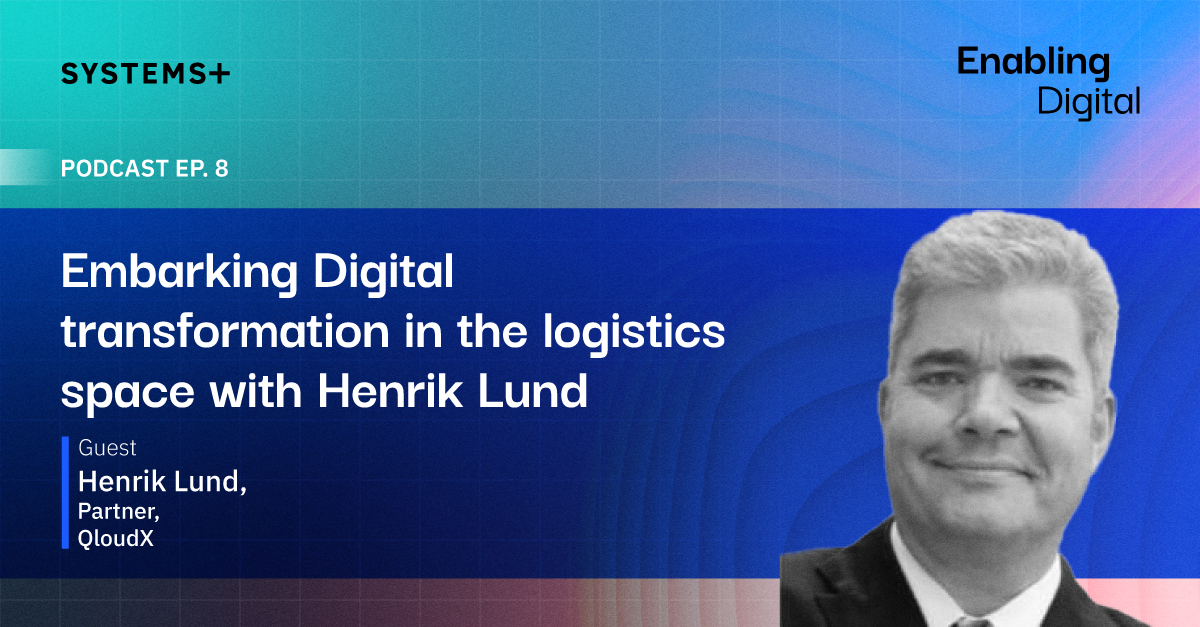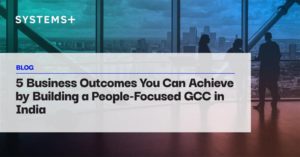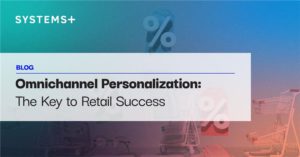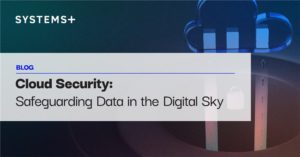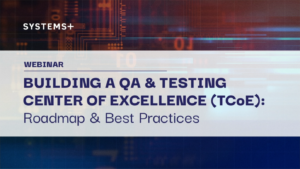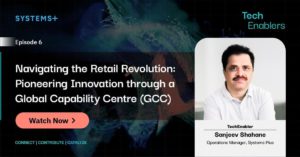Sapan Choksi 00.04
Welcome to enabling digital a Systems plus Podcast Series. Today. I'm happy to welcome Henrik Lund a veteran in the transportation and logistics space and a true believer in technology. And why digital transformation is the need of the hour in this space. Henrik, welcome. And if you don't mind, if you could take about 30 seconds for our listeners to give a little bit of your background and a brief introduction if you want?
Henrik Lund 00.53
Yeah, absolutely. Thanks, Sapan. Thanks very much. And, yeah, just a quick background introduction to myself. I'm based in Switzerland. First of all, I'm Danish, of birth, and upbringing. And I come from a background in the global freight forwarding and logistics industry over the past several decades, having worked sort of a third of my career in Europe, the US, Asia, Hong Kong, and Singapore, I've worked for some very large, some of the largest organizations and also some very large mid-sized organization. So it's all been through Yeah, all the, let's say, the developments that have happened over the last 30-plus years in the industry. And of course, when I decided to join CloudX, that is about three and a half years ago, it was whether with a heavy passion for progressing, really progressing the technology within the forwarding organization. So that's just a little bit of background of myself. What would my role be in CloudX? You know, I'm the partner and primarily, you know, my core, let's say focus is the commercial side of the business dealing and speaking with, with the customers, helping try to map out some of their needs, or both on the technology side, providing that with not only mine but many of our colleagues in cloud X and of course, System Plus group with our knowledge, deep knowledge in the industry.
Sapan Choksi 02.36
That's fantastic. So actually, I want to dive right in. I have a lot of questions. Right. But my first and most important question is, why do you feel that the transportation logistics space is well behind the curve? When it comes to digital transformation, than many other industries?
Henrik Lund 02.51
I think, I know, from experience, and I think it's pretty well known, I mean, you can just open the papers, and all the media, I think the industry, if you go way back to the, you know, the 90s even have under-invested into technology. And many, many forwarders if not all back, you know, 20 plus years ago, many have had, you know, develop their own systems, as some of them had roots back to the 80s. I think the other thing that's important to understand also, in general, with the global logistics industry, it's, it's a fairly low margin business when you look at the United States, the EBIT return. So you could argue, I mean, certainly, somebody could defend themselves to say the money was simply not there. I still believe that it's a question of whatever money you have to invest forward, you will take the right decisions and invest in the right type, of technology. So I think the industry has just really been, you know, behind for so many years. And I think it's only over the last decade that this has come into high focus. I think many boardrooms have, you know, many executive boards back years have not even had the CIO on the board. So I think there's been a realization over the last, I would say at least 10 years, also, with the emergence, of the cloud, that this has to be in high focus. And then there are a lot of different reasons why there has to be a high focus.
Sapan Choksi 04.31
So then, let me ask you this how do you feel cloud and cloud-based technologies are currently disrupting the traditional model?
Henrik Lund 04.40
Well, I think I mean, what we say to our customers is you don't just move to the cloud necessarily to save money. I think that the first phase, of, let's say, creating a cloud strategy and starting making, let's say, a hybrid strategy and moving to the cloud, certain applications to the cloud. I think you should do it. Because, again, to answer your question, you can develop faster in the cloud. And you can create much more seamless solutions. When you embark on your, let's say, your true digital transformation. And I think that's the key.
Sapan Choksi 05.22
Okay, I agree. But now, a board member or CEO might argue that, well, things are working, they're working fine. Yeah, you know, there are no major problems are getting whatever we need, etc. So why change?
Henrik Lund 05.43
I would do a little bit of research, and to this particular board, I would go out and benchmark a little bit against maybe four or five of the competitors. And I would, you know, try to do some very quick walkthrough of the, you know, top down on the P&L to show, you know, they probably have around the same gross margins. And then, when you get down to operating expenses, I think that's really where the battle stands in terms of pure financial performance. So I think, to a board like that, I would first of all, say, I think you should understand a little bit better, what digital transformation is, and what the cloud is and offers because a lot of them don't have knowledge about it, some might even shy away from it. And then I would, I would argue that you know, let's take three or four or five competitors, that simply outperform them on, let's say, converting GP to EBIT. So really operating more efficiently. And let's just use it as an example that, you know, the customer we're speaking to who has doubts, you know, they have an EBIT, maybe of two and a half percent, and some of the larger competitors, maybe have an EBIT of four and a half percent, you know, I think that would you know, if I was on the board, that would worry me, and I would ask, why is that? And I think there you will then have to try to help them to, to organize their priorities in terms of, you know, where is it that we can operate more efficiently? And where can we take the cost out?
Sapan Choksi 07.15
I'm really glad you give that answer because honestly, most, most people, for technologists first thing to convince on the technology, and you're taking the approach of hoping to understand from a business aspect how you can impact the GP versus the EBIT. And I think that's important because a lot of times what happens is a technologist gets lost in technology. And often, the business side gets lost in numbers. And it is very important. And I think you bring that to the table.
Henrik Lund 07.46
Yeah. So I think that would be my answer. Thank you, Sapan, because I think, you know, and then maybe that's going a little bit off track. But if the question is also that, you know, there's a lot of articles out, McKinsey had written some really good ones and Boston Consulting on, you know, is there enough knowledge in the boardroom? And in particular, even in the executive boardroom? Is there enough knowledge and understanding, you know, the whys? Why? You know, IT and technology shouldn’t just be viewed as an expense in the budget, you have to look at, you know, if we follow this path that we're being recommended, what would the return be? Right? And what are the timelines look like? So I think, and I think that's, it's changing, for sure. I mean, you know, many companies, I mean, many people ask me to say, What's the difference between a CIO and CTO, or CIO as Chief Digital Officer? And I think 10 years ago, people were rolling their eyes if there was this split, right? But I think, you know, the answer to me is a CIO is very much focusing on infrastructure where a CTO or CTO is focusing on the future, and their say, on creating solutions, from a technology standpoint, in trying to create seamless solutions to the customers one better customer experience and two obviously, being able to service the customer, both more effectively, and also at less cost.
Sapan Choksi 09.20
Yes, fantastic. And so you I'm sure you have seen enough companies in this space who have embraced technology, right? What are the key differences? And now just in the last 10 years, a lot of companies are started recognizing it, and there are some new players who are more or less, fully tech-based platforms, etc. Right? And the big differences that you've seen over the traditional models that the older companies still use, right, or starting to change versus these new tech-based tech-savvy companies, what are the big differences that you're seeing and therefore one of the big wins? Do you see them getting in the industry?
Henrik Lund 10.03
You mean the let's say the, you know, the digital forwarders or the virtual forwarders?
Sapan Choksi 10.08
Yeah, I mean that example, or also there are companies, like, you know, even the freight forwarders, who invested heavily into technology, and have made simple things like the customer experience much better for the customer acquisition becomes easier, versus you know, things, things of that nature, whereas, companies still focus on the paper and pen. Right?
Henrik Lund 10.27
Yes. So I think I think if you take the traditional forwarder, and if you look at some of these organizations that you know, already, you know, 10 or 12 or 15 years ago, realize that you know, they need to change, and they need, you know, it started with, you know, you had a quotation tool for the customer that they could, request the price, multiple lanes, and they could get an immediate quote, based on, the rate database that had been put together, and then you developed a, say, the next step would then be the customer could actually book it, sort of right away, they could accept a quotation and book it. And then it goes well, beyond that, I think there is a number of companies in particular, some of the big ones that actually have been very successful already, quite some time ago, in developing, front end solutions to the customer that makes it easier to do business that, captures potentially much more business and revenue, because the customer likes the fact that they can, they don't need to pick up the phone or send an email, they can just go in and do a quick, quick request, and then they can take a decision. I think the ones that, you know, were early movers to the cloud, also, you know, obviously have a, say, in advances, because they've been developing in the cloud, I think, first companies and I, this is not that many years ago, four or five years ago, you know, speaking to customers who were fully on prem, with their own data centers in, you know, in multiple locations. You know, they were very skeptical about the cloud, what about security? We don't want our data sitting up in the cloud, we don't know where it's, it's we don't know, who can see it. Right. So I think that, obviously, I think to me, and particularly there'll be is that that we do very, very much with, you know, I think that hurdle has been overcome, right, because the amount of resources they have to invest, both in terms of, you know, skilled people, and also finance, investments, developing all these, you know, very stringent security protocols, and, and all different types of, let's say, safeguards, to an extent where you could argue a customer couldn't do that themselves, could they simply wouldn't have the resources and potentially not have the safety, ongoing, latest knowledge. So I think that's the first hurdle and then I think, is to really understand what the cloud can do. And I think what we've done a lot is done, we call them strategic reviews, where we sit down with the customer and through a number of, of, let's say, focused workshops that can be done in the room, or could be done on, on, you know, on video conference, and try to understand the whole landscape and the whole ecosystem, and then help them really develop a strategy and a roadmap on how they should build, let's say, how should they build the path going forward? How does the how do the priorities look like? That's their decision? Of course, we can help them with that, and how does it all sort of dovetail together in parallel when you start developing, I think that's where the advantage of the cloud is clearly that particularly if you go cloud native, that you can develop a lot faster based on the constant latest technology, as opposed to old technology.
Sapan Choksi 13.59
Right, so I want to, you know, while you're doing these workshops, for example, as you mentioned, do you often get into the discussions about customers customer, so you know, in a sense, if you can convince your customer that their customer is going to have a much better experience by placing an order, you know, as you alluded to, now, I can just go online and track my order, whether there's an order or shipment or payment or whatever it happens to be simple things like that. Right? How do you tie that in? Because in the end, you know, it's really the customer is the King, right? So I think I didn't mince them.
Henrik Lund: 14.39
Yeah, no, it's a great question. This happened because this is very important. I mean, because you have to have the say the end in mind, right? And I think our customers follow their customer is an exporter or an importer. And you can even take it one step further, which I think is important because you know, the customer has a customer and what is the impact all the way along, you know, the supply chain, so to speak right to the, to the end buyer, I mean, the person who buys a new suit or new shirt or new TV or whatever it may be an iPhone, you know that, that that has to be visible to the customer? And I think it also I mean, goes back to talking a little bit about the boardroom. You know, it's easier to lap, you know, the, let's say the CIO or, you know, there's the CTO, it's easier to tell them up to present their case for budget and investment. When it's more clear what is the impact? And what they would ask, what's the return? What's in it for us? It always becomes difficult to sort of quantify customer experience. Right, but, you know, happy customers versus not-so-happy customers should have a positive effect over time for sure. So I think that that's one of the things that we do as a starting point. And that generally, well, it always seems to be quite successful customers, I have been with the output, and a generally leads into identifying one or two projects that we then engage with them on to really help them and also provide support resources, development capabilities, and so on.
Sapan Choksi: 16.31
Right. So one thing I've noticed in this specific industry space is that, and then, I acknowledge that domain knowledge or industry experience is extremely important when they do embark on some kind of digital transformation journey with any customer. But I did that in this space, it's even more important because a lot of the stuff happens behind the scenes, it's stuff that you don't see. And therefore, you know, it's not something that's so easily recognized, for example, right? If I'm working with the retailer, I can imagine how my cloth gets, to the tailor, and from Taylor center to this thing, and then eventually have it come to me, or how I order it. I can imagine that because I’ve married something like that every day. Yeah, great side, all that stuff is the stuff that happens behind the scenes, I don't see it, I don't whatever, once in a while, I may see a big ship, whatever. And that's it. Right. So, you know, it's just it doesn't seem as intuitive. So I presume that in this area, so sorry. To get to the question, I presume that industry experience in this area is probably extremely important. I don't want to downplay any of the other industries. But here, I think it probably becomes a little bit of like, table stakes, don't you think?
Henrik Lund 17.54
Well, if I understand the question correctly I think the fact that we do differentiate ourselves, I think quite a fair bit from other companies, other technology consultants, and so on, where we have a very strong background from the supply chain industry, having many of us work for many years for very large organizations in the logistics space around the world. So we have, we have a piece of very deep knowledge, in how the supply chain actually operates and how it functions. We also understand all the constraints, we understand you know, all the different challenges and the bottlenecks and so on, which, which allows us to, to understand the customer's, you know, business in general, much better, we don't just approach it from pure technology, let's say perspective, right, we understand that they have, you know, they're dealing with a global deal with a global flow of goods, basically from cradle to grave, right. They're dealing with regulations, they're dealing with multiple vendors, of course, shipping lines, airlines, you know, road feeder services, warehouses crosstalk, the list goes on, they're dealing with different customs regulations. So all these things make a business shipping from A to B, which seems quite simple, actually, it makes it quite complex. And it also makes it very labor-intensive. This goes back to what I said earlier about, you know, in a brutal way, say taking cost out the last week, a company generally would like to take costs out just to let go of people sometimes unfortunately, they have to but rather looking at how can we take cost out and actually embracing and, and using the technology and the different tools that are available in the cloud. And I think those who are embracing that and those who are really investing into that will be definitely ahead of the game, as the years progress, the years to come. And it shows, I mean, you could see the growth faster, and you can see their financial performance is better. Because we have a traditional global network forwarder. Still, it's very labor intensive. There are a lot of manual processes, there's a lot of data entry happening. And there's a lot of, yeah, there's a lot. I mean, in a sense, there's also a lot of waste, right? Because you can't have a staff, at least, I don't think so that can sit for, let's say, seven or eight hours a day and just be fully productive, you know, doing data entry, I mean, that there's a limit to what I think even from a human perspective, how much people can take, right?
Sapan Choksi 20.45
Absolutely. So you’re alluded to the future. So let me ask you about the future. Do you? Are you seeing certain trends in the industry, and how technology can help us sort of, you know, achieve the goals that companies might have, etc? And on what are you seeing in terms of the future of technology in this space?
Henrik Lund: 21.09
I see a lot of things. I think, first of all, this is very specific, but it's at the core of how a freight forwarder actually transacts their business. And again, as I mentioned earlier, transport management system, TMS, which is sort of an ERP, freight forwarders had many of them develop their own. There are there were some systems available in the market. Many have tried to develop themselves again, about 10 years ago, there was a very large German base forwarder that had to abandon that project, which was quite a big, big ride off. But the emergence of wisetech and cargo wise one, which is a listed company in Australia, which has been around for over 30 years. So wisetech, and their cargo wise one, TMS and the whole platform, they've really developed over the past, I would say, well, many years, but sort of, in my view, you know, accelerated the onboarding of new customers about, you know, a good 10 years ago. And today really is quite dominant in the industry. They're not the only ones. There are other ones in the US, Canada, and there are some in Europe and, and elsewhere. But I think the fact that I think a lot of forwarders have moved on to you know, a single TMS platform. And it's not just, of course, this particular company I mentioned. But, they're starting to look at saying it's almost like in the old days when you bought an IBM or Lenovo and said Intel Inside, it's almost to say, look, let's just get that very, very proven, robust, core operating system rolled out, and let's do it as fast as we can. And let's start building around it, first of all, these systems are developing and expanding their capabilities themselves. And then you can start really building around it all the different, let's say solutions that you want to sort of plug-in and hold on. And, and that's been the trend. We actually were the first some I think about two and a half years ago who actually did a POC for an existing customer, proving that one of these TMS systems which they had intended to host themselves could actually operate more efficiently in the cloud, and it was very successful in this ecosystem.
Sapan Choksi 23.38
So that's pretty cool.
Henrik Lund 23.40
Yeah, it is. And again, because, you know, on prem versus cloud, I mean, should it be 100%? On practice? Should it be 100%? Cloud? You know, there's always a hybrid solution, where you still can operate some maybe very critical applications that you feel you want to have in a number of own data centers. And then you have a hybrid with the cloud. And I think, you know, it also, I mean, it, you know, if we talk about challenges for companies facing when the transition to the cloud one is actually knowledge because certainly many customers will be spoken to who are in the early stages of exploring, what they can do in terms of, you know, really on a transition to the cloud. I mean, they lacked internal knowledge in their people. And this is also something we've been helping with a lot and ongoing where we actually provide support and advice and even people coming in to, let's say, for a period of six, nine or 12 months or even beyond that, really, you know, helping build the knowledge within, within the customer’s own teams.
Sapan Choksi:24.54
Absolutely. So, before we sort of wrap up, I actually want to ask you this question, actually very keen to get your perspective. Is that what advice would you give to global logistics companies even, you know, smaller companies, etc, are looking to embark on their digital transformation journey? You know, what advice would you give in terms of? How should they think about it? What approach they should take, etc? And I know you touched on this, you know, throughout our conversation in different ways, but in a sense, if somebody's going to say, Okay, I know I need to get there. Right, I need help. So, you know, I think to summarize, you know, in your own words, what advice would you give them?
Henrik Lund 25.40
I think first, I would tell them, to find the right partner. And I obviously would like to say that I think they should choose us. And if you then ask me why. So we are not the biggest in the world, but we have significant resources in our company, to scale out support. And we have significant deep knowledge ongoing in terms of accredited and certified people in terms of the cloud, you know, it keeps expanding, and it's something we're very religious about that, that our people are really, really up to date with the latest knowledge and so on. I think we're very agile, and now I'm obviously selling us nevertheless, but really find the right partner. And I think they should also bury, I wouldn't say bury their pride, but don't be, don't be defensive, you know, share, and open up so that we can get, you know, a better view on where we think you need to which problems do you need to push? And, you know, can we help you with your prioritization? And I think also, companies should be honest and assess their internal resources to understand if their people need to actually go and get trained, or they need to get help, or we need to hire, you know some key people in I think, it's really about, trying to say, the way we've done things the last, you know, 20 years, that might not be the way we should do it the next 20 years or even the next three years. Right. And that I can tell you something, I mean, that that is big, that's a big thing that needs to be looked at. I've also seen customers where you know, you might need to make some changes to get things actually moving in the right direction. Right. So, I think find the right partner, that's the short answer. And the right partner is not necessarily the biggest company out there.
I think the right partner is somebody who really also fits with the culture and also has the knowledge and it goes back to what I've said several times that we understand the business, we have managed in different aspects of the business me more on the operational and the product and the sales and Key Account Management Science at scale and others in the company like Nicolas, Tom, twist, our CEO, and co-founder right has 25 years experience from the transportation industry, having built some, some very, very large ERP system and really lead the way in. Yeah, in many forward-looking solutions.
Sapan Choksi 28:29
That's fantastic. Henrik, thank you so much for your time. And I want to thank our listeners and do tune in next time for another session of Enabling Digital a Systems plus podcast series. And with that, signing off, thank you again.
Henrik Lund 28.43
Yeah, thanks very much.
